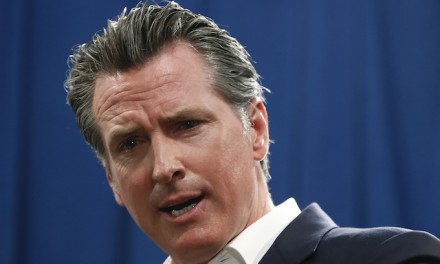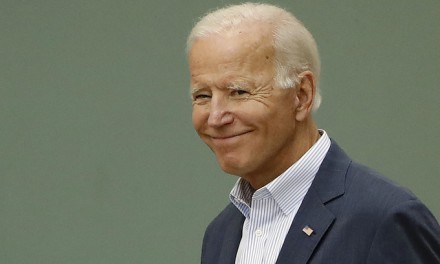Jay Sekulow, Chief Counsel for the American Center for Law and Justice (ACLJ), has a solution for President Donald Trump’s troubles with the radically left 9th Circuit Court of Appeals.
After the circuit court predictably issued its ruling to uphold the earlier decision from Washington state to halt Trump’s executive order temporarily restricting travel from seven terrorist nations, Sekulow recommended that the White House reissue a new order. The revised language would make it clear that the pause doesn’t apply to existing visa or green card holders.
Sekulow and other legal experts agree that Trump’s action is legal, constitutional, and according to the amicus brief ACLJ filed with the federal appeals court, “clearly fall [s] within the president’s well-established constitutional and statutory authority.” As Trump said during his address to a group of police chiefs, “a bad high school student would understand this.” Trump read aloud the relevant Immigration and Nationality Act statute which states unambiguously that the president has the authority to suspend aliens or classes of aliens that he deems would be detrimental to the United States’ interests. But the defiant 9th Court saw it differently, and ruled to give due process to foreign nationals who have no constitutional right to travel to the U.S.
Another legal scholar, Northwestern University Professor Eugene Kontorovich, wrote in The Washington Post that one of the reasons the 9th Circuit ruled against Trump was because of his campaign statement, quickly withdrawn, that if elected, he would ban Muslims from U.S. entry.
Kontorovich opined that there’s no prior example for courts to rule based on campaign statements, and he concluded that if the president can’t restrict immigration from a part of the Muslim-majority world, then the immigration system that Congress established would no longer be an Executive Branch responsibility, but would become Judiciary-branch controlled.
A third lawyer, Yale University Law School graduate Ben Stein, offered some interesting insights into how the 9th Circuit has drifted away from a constitutional-based interpretation of the law. In The American Spectator, Stein wrote that “beyond a shadow of a doubt,” Trump has the power to set immigration policy in the national interest: “That’s in the law. That’s in cases decided by the courts. It’s not even a remotely close case.” But Stein notes that what he calls “legal reality” is too often how judges apply the law. Judges, said Stein, have “every human frailty,” want to please their friends, and become folk heroes. Then Stein added his most pertinent analysis: judges “want to be loved by the media.”
Right now, the media is head-over-heels with the 9th Circuit Court. Multiple print stories and broadcasts have been published and aired that predict that the court’s interim decision inflicted a mortal blow to the Trump administration’s immigration agenda, and undermined his presidential credibility.
That’s hyped nonsense, and wishful thinking. The final decision on refugee pause is yet to come. The 9th Circuit is the most overturned court in the nation, at a whopping 80 percent rate. A new order awaits. And the refugee pause represents only a fraction of Trump’s ten-point immigration plan that includes the Southern Border wall and E-Verify, both of which are moving ahead.
Although the mainstream media headlines don’t reflect it, the majority supports Trump’s refugee order. They also wonder when, if ever, Trump, in office less than a month, will get a fair shake from Democrats, the Left Coast and the media.
—
A Californians for Population Stabilization Senior Writing Fellow.


















Recent Comments